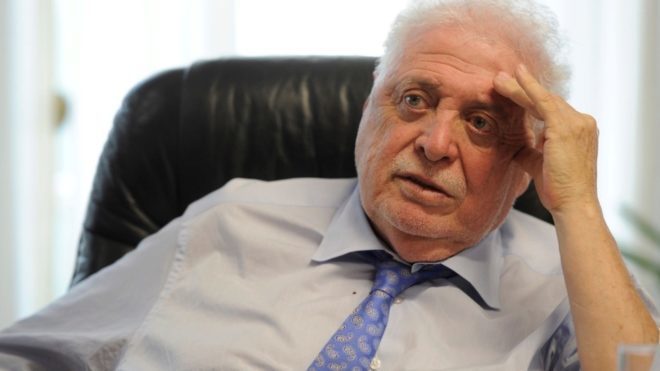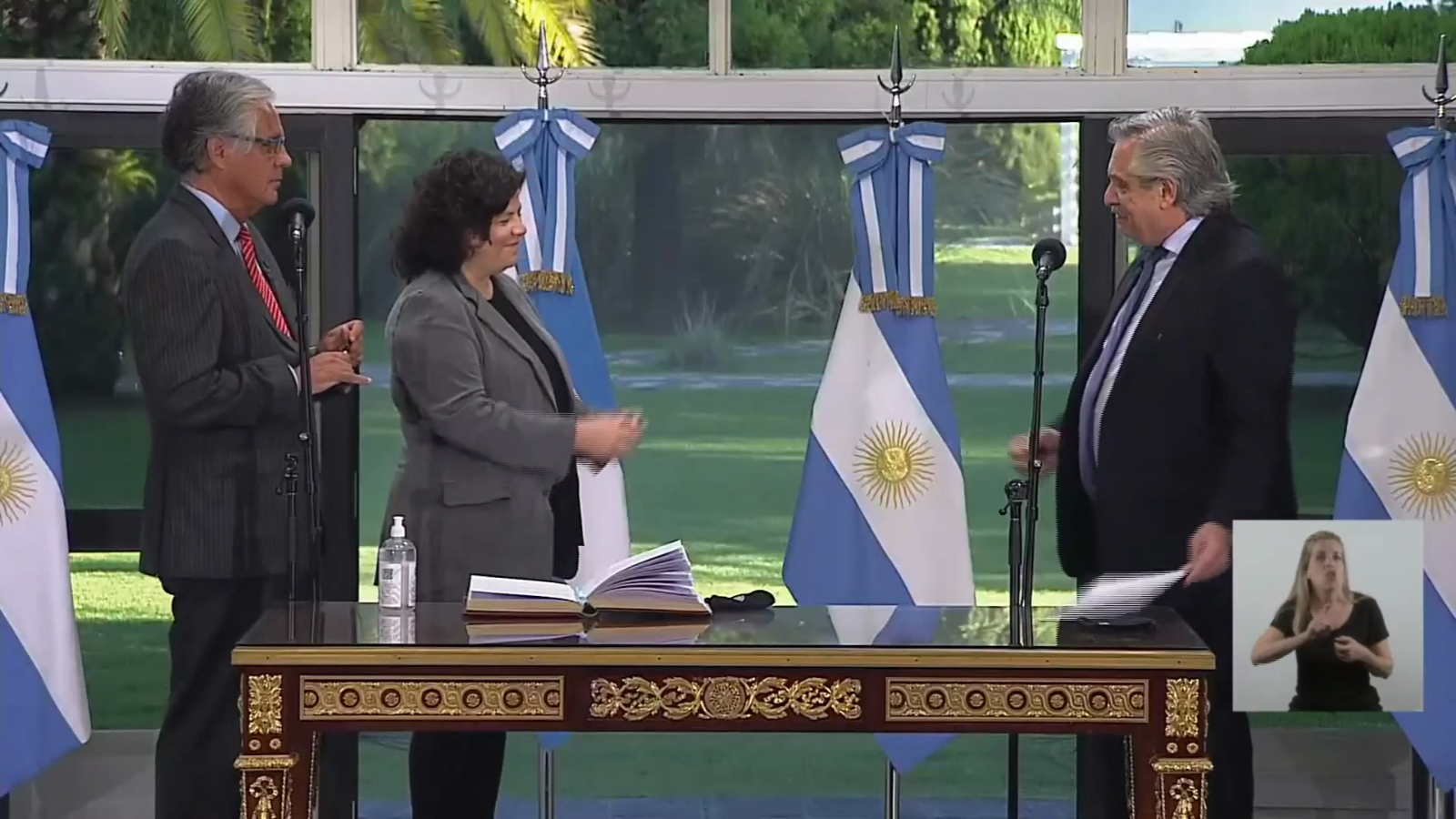On February 20, the Minister of Health of Argentina, Gines Gonzalez Garcia, resigned after the COVID-19 “VIP vaccination” scandal in the country for those close to the government. Who has access to vaccination against the dangerous virus today? How will these February events affect the rating of the Argentine leader?
The “Aerolineas Argentinas” aircraft carrying 400,000 doses of the Russian COVID-19 vaccine “Sputnik V” landed at Buenos Aires International Airport on 13 February. In this regard, the Argentine airline posted a video on its “Twitter” account, where you can trace the moment the plane with this important cargo landed at the Ezeiza airport. This is the fourth delivery of the Russian vaccine to this Latin American country. Speaking about the consignments of the “Sputnik V”, it is worth remembering that on December 24 of last year, the first flight to Argentina delivered 300 thousand doses of vaccine, the same amount was delivered by the second on January 16, the third brought 240 thousand doses of vaccine to Argentina on January 28, 20 thousand of which were destined for Bolivia.
The total vaccination in Argentina began at the end of last year, with health workers being the first to gain access to the medicine. Today, citizens over 80 have the priority right to vaccination. According to the estimates of the international news agency “Reuters”, in a country with a population of about 44.5 million people, more than 2 million cases of coronavirus infection have been confirmed, of which 51.5 thousand were fatal.
The scandal with the “VIP vaccination”, as it was dubbed by a number of Argentine mass media, erupted when on February 19 Horacio Verbitsky on the air of the local radio station “El Destape” talked about how he got the vaccine “by an acquaintance”. In turn, the journalist explained that in order to receive the vaccine, he made a call to his “old friend” Ginés Gonzalez García (Spanish – Ginés Mario González García), who arranged everything. Subsequently, it became known that the Ministry of Health postponed about 3 thousand doses of the “Sputnik V” vaccine from the first batch, which came from Russia, in order to provide it without a queue to “the right people” close to the government. In addition, it turned out that among those who were vaccinated against COVID-19 in this way, in particular, the nephew of Gonzalez García.

Later, the Argentine metropolitan newspaper “Clarin” published a list of high-ranking officials who were able to receive the coronavirus vaccine without waiting in line. The speech in the articles of the publication is about the vaccine “Sputnik V” produced in Russia. The Argentine government approved its use at the end of December last year. At the same time, the drug developed by the “Pfizer” and “BionTech” was also approved for use in the country. According to “Clarin”, a friend of the President Alberto Fernández (Spanish – Alberto Ángel Fernández) – Eduardo Valdez, and the Senator Jorge Taiana (Spanish – Jorge Enrique Taiana) also managed to get the vaccine by acquaintance. By the way, the Argentine leader was vaccinated with the Russian “Sputnik V” a month ago. The 61-year-old head of state was vaccinated a day after the Argentine regulator approved the Russian-made vaccine for use in people over 60.
After a scandal over vaccinations began in the country, the President of Argentina demanded the resignation of the head of the Ministry of Health on February 20. On the same day, through his “Twitter” account, Ginés Gonzalez García resigned as the head of this department. The new Minister has already been appointed Carla Vizzotti, who was Gonzalez Garcia’s Deputy for health care accessibility.
The “VIP vaccination” scandal has become the “cherry on top” in the sanitary crisis that has taken on a political dimension in recent months. By the way, Argentina is one of the first countries in the world to receive the Russian coronavirus vaccine in a full-fledged batch, and not limited, that is, intended for research, like a number of other countries that the Russian authorities attributed to the number of “importers” of the medicine from COVID-19. Moreover, from the very beginning, this delivery was accompanied by many difficulties, which have now exacerbated the already resonant picture of what is happening.

First of all, it is worth noting that the “Sputnik V” vaccine ended up in this South American country under such an accelerated registration scheme that even the most stringent bureaucratic tools could not prevent it. Given that the Argentine bureaucracy is one of the “slowest” in Latin America, the approval of the Russian vaccine in the shortest possible time raised a number of questions.
Secondly, having made the main bet on a vaccine from Russia, the Argentine government thwarted the plan for universal vaccination of the country. According to official data from the Ministry of Health, as of mid-February in Argentina, in a country with a population of 44.5 million people, 337.555 people received the first dose of “Sputnik V”, and 196.544 people received the second dose. Thus, the two-phase vaccination cycle has passed 0.46 % of the country’s population, while the Argentine authorities in December 2020 promised to vaccinate 10 million people by this time.
Russia was not able to simultaneously provide such a quantity of the medicine to the Argentine market, at the moment, as in all vaccine-producing countries, the main problem is the volume of production capacity for large-scale vaccine export. The Argentine government was forced to adjust the coronavirus vaccination plan for six months, until the end of June. That is, a third of the country will be vaccinated, not as expected in December 2020, but by the end of June 2021.
And a very logical step was that the Ministry of Health of the Latin American country, under severe pressure, in the most accelerated mode, additionally registered the Chinese vaccine produced by the company “Sinopharm”, which in a batch of 1 million doses will have to stay in Buenos Aires, as scheduled on February 25. The third reason that influenced the drop in the government’s rating in the eyes of Argentines against the backdrop of the fight against the pandemic was the aforementioned “VIP vaccination”, which, according to eyewitnesses, has been flourishing since December last year and meets the interests of the country’s government and business elite.
Today, the “vaccination race” directly affects the rating and approval of each country’s government. However, referring to the Argentine example, it is worth emphasizing that the pandemic has exposed very fundamental problems such as corruption, strong ties between big business and government, and the decision-making process. Whether Alberto Fernandez will be able to fulfill the “New Year” promises, the next few months will show. However, this time the “outcome of the game” will directly depend not only on the coordinated and transparent work of the entire current government, but on the ability to build timely and durable mechanisms with its strategic partners.


